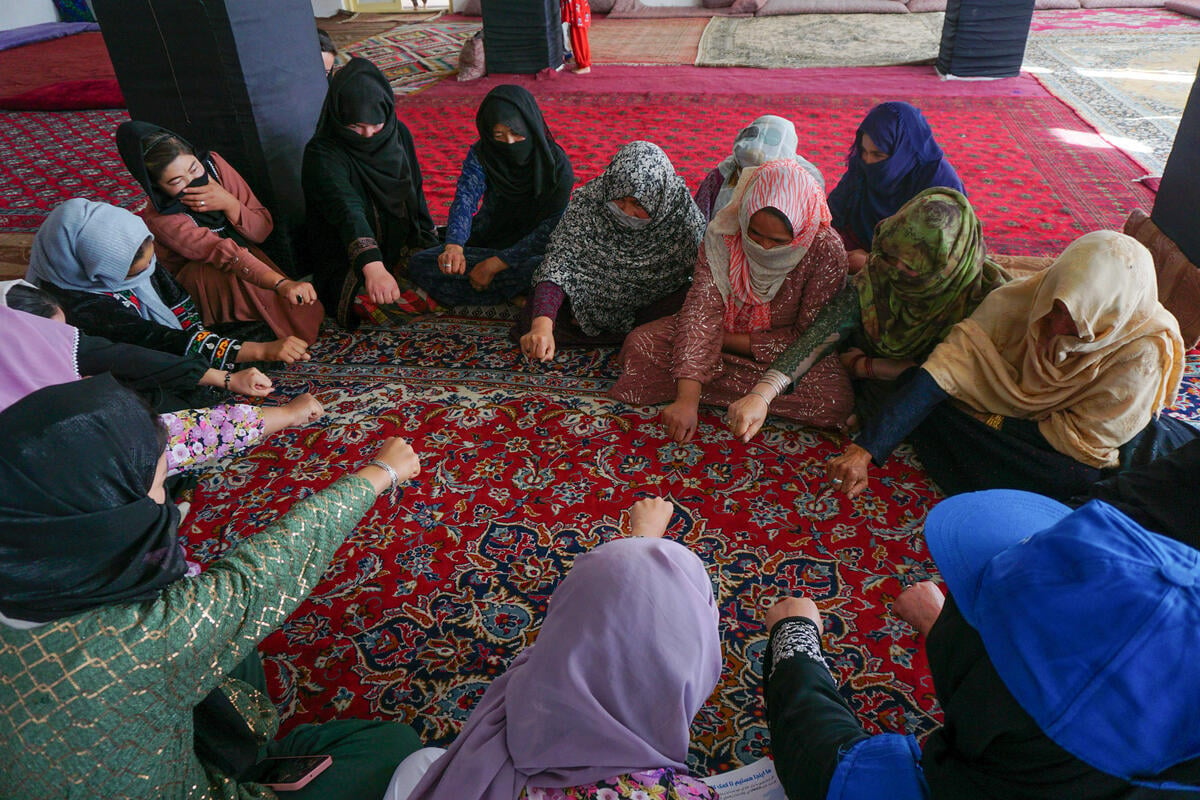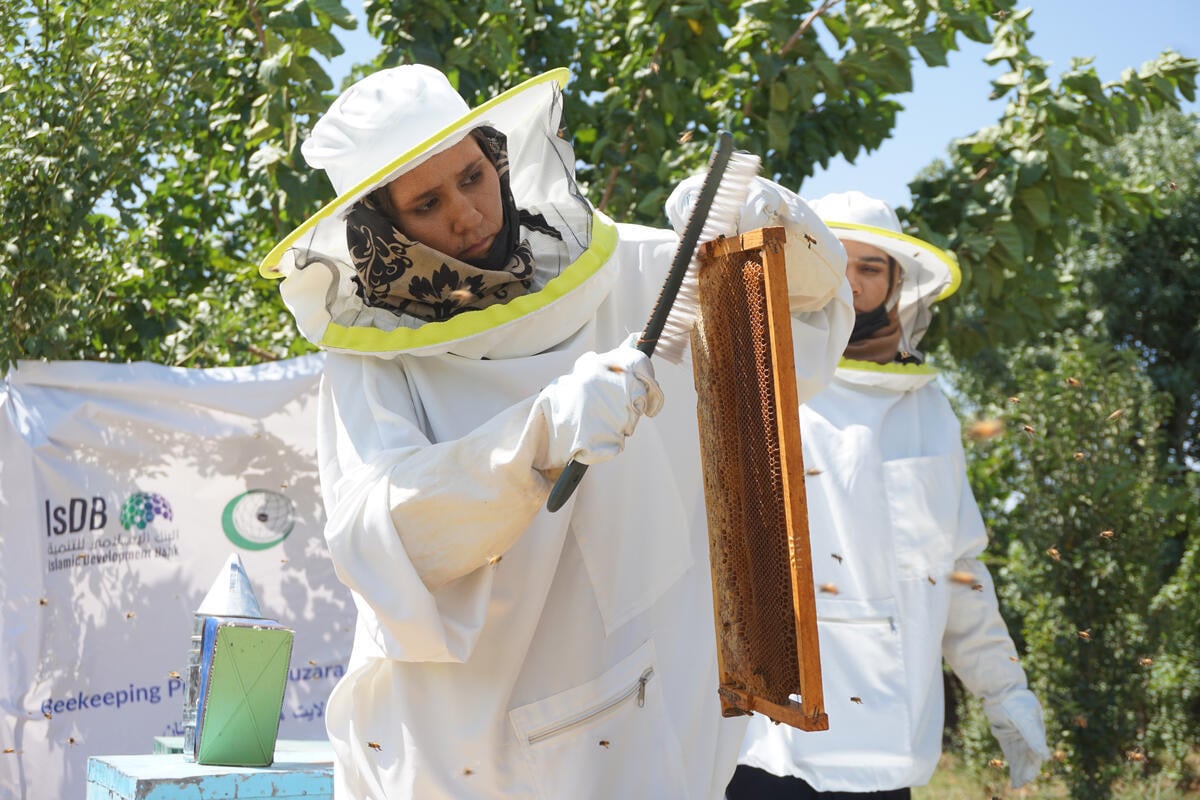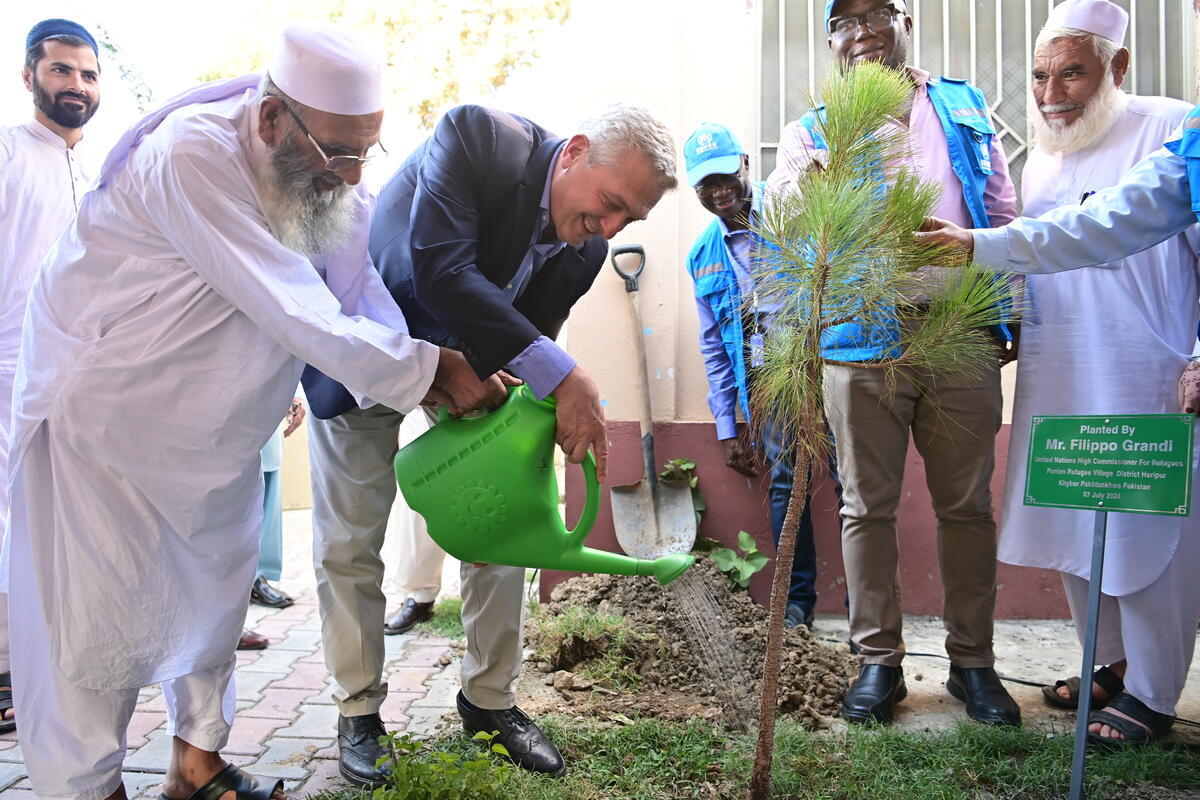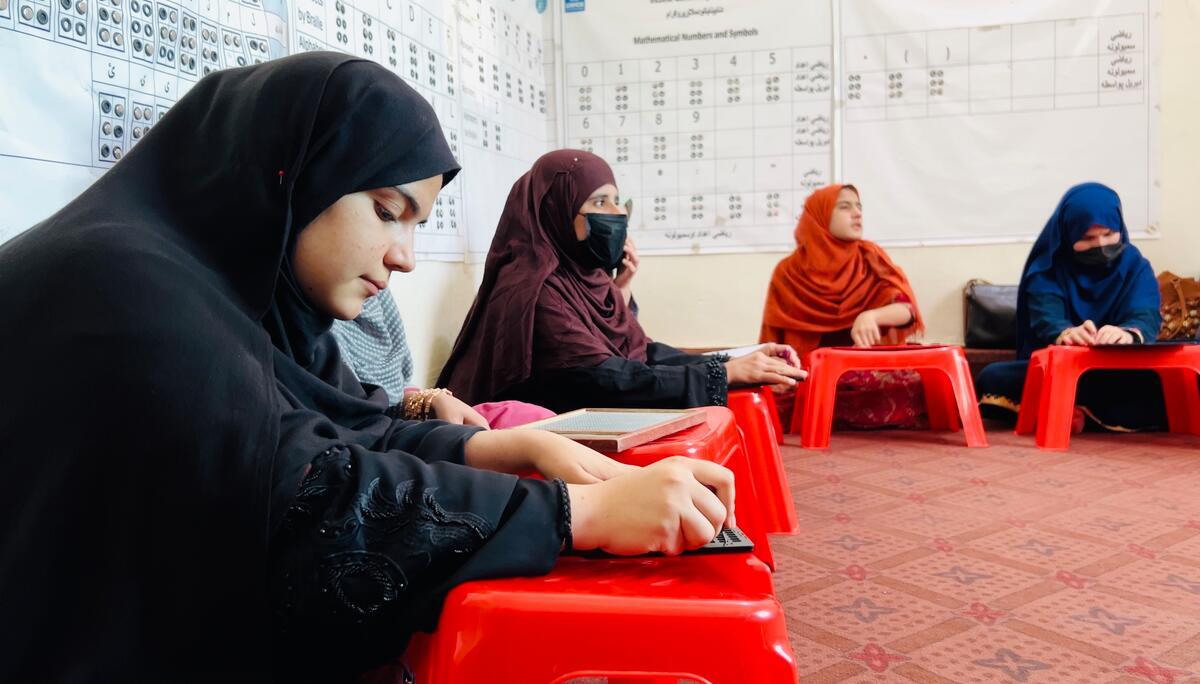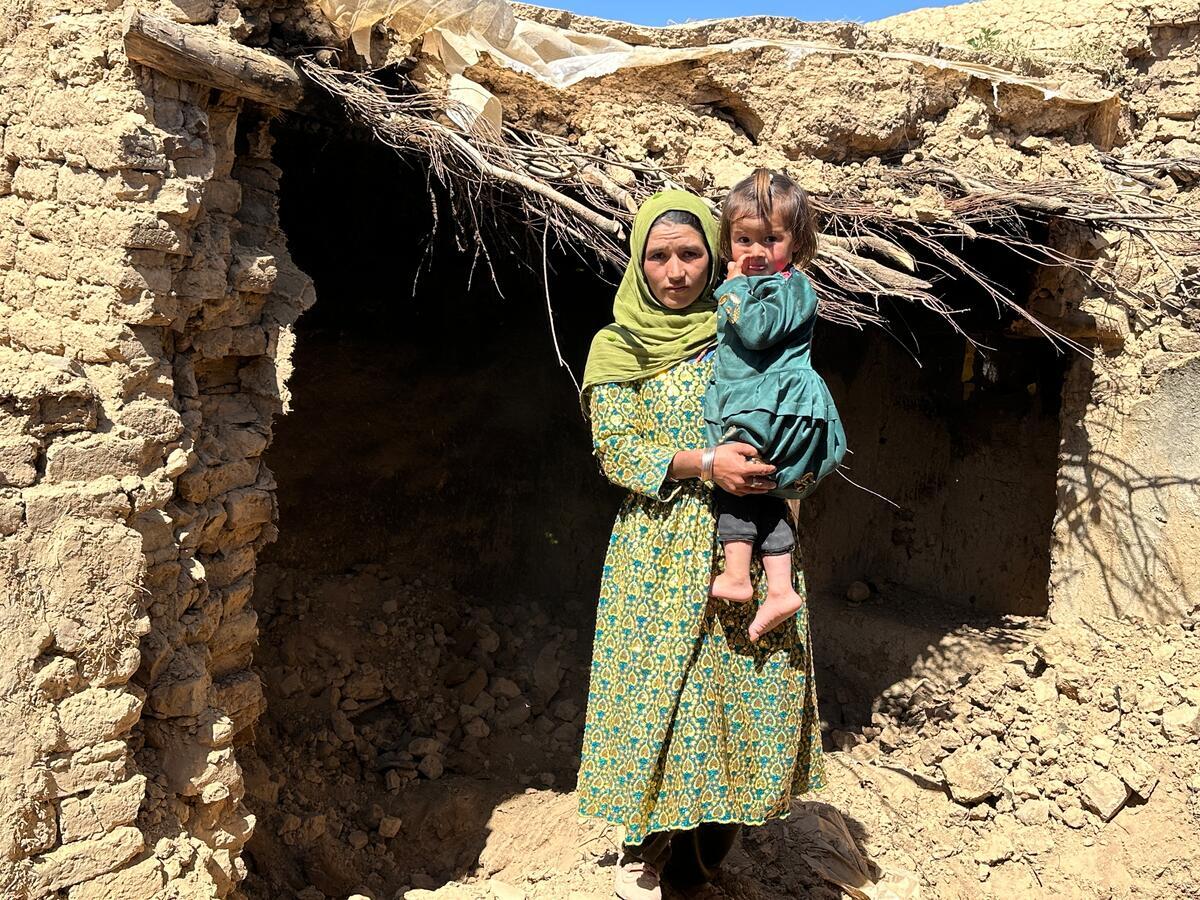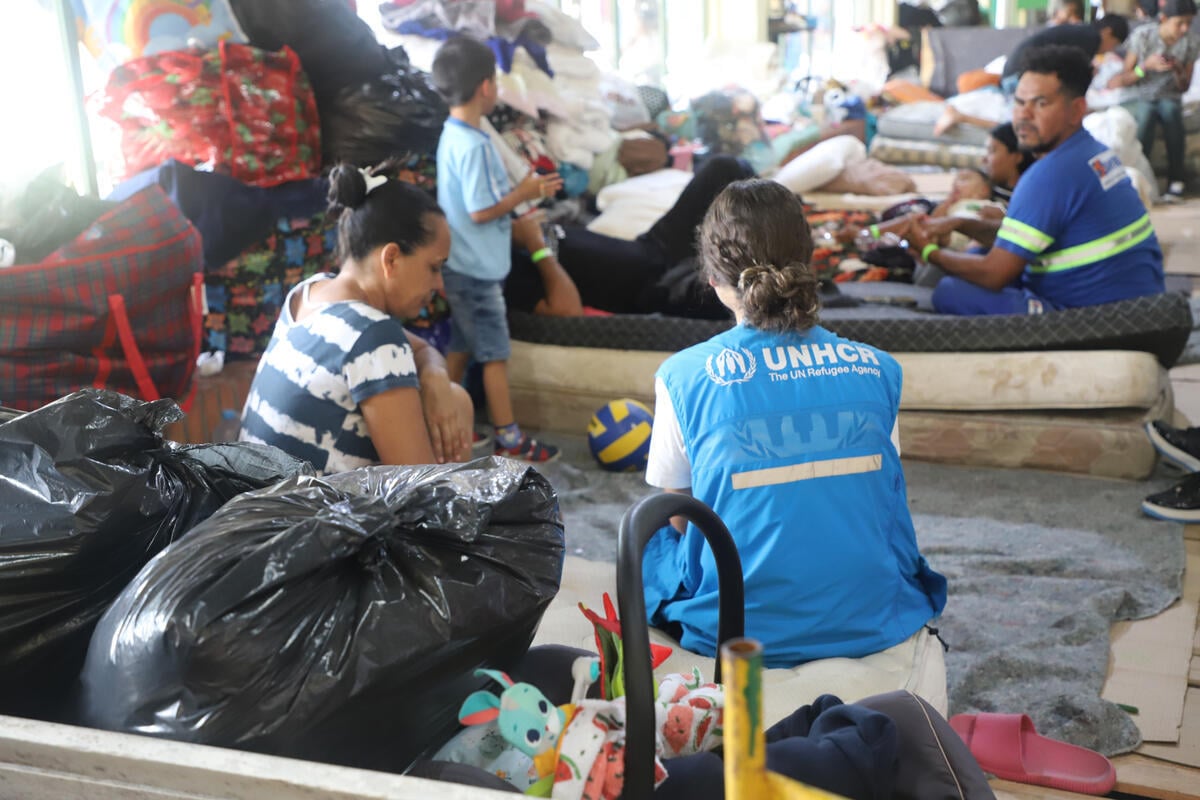Afghanistan Humanitarian Update No. 42
Afghanistan Humanitarian Update No. 42
At a Glance:
- Returns to Kabul top 3,000
- Distribution completed to four camps in Herat
- Transfer of refugees in Quetta to start Thursday
- Transfers continue to Roghani camp
- Tension and confusion reported in Spin Boldak
- First of three relief flights arrives in Mashad, Iran
- Highest daily return from Iran this year
- New reports of deportations from Iran
- Afghanistan plan of action launched
Returns to Kabul top 3,000
UNHCR monitors at the four main entry points into Kabul report over 3,000 returns of internally displaced people and refugees since Friday. The returning refugees (260) were all coming back from Pakistan's North-West Frontier Province.
At the same time, internally displaced Afghans in Kabul are leaving the city to return to the Shomali Plains to the north. An estimated 200,000 people from the Shomali Plains were displaced during the years of civil war in Afghanistan. Around half of those have been staying in Kabul. UNHCR on Tuesday hosted a first coordination meeting with aid agencies in Kabul on the returns to Shomali. An inter-agency assessment will be carried out shortly among the displaced people in the Panjshir Valley to the north of Shomali and in the ex-Soviet compound in Kabul. The assessment will determine what the needs of the displaced people are and whether they plan to return.
On Wednesday, UNHCR began a four-day assistance programme, which will help more than 10,000 of the most vulnerable internally displaced people in Kabul to survive the bitter winter. UNHCR provided blankets, sweaters, plastic sheets, kitchen sets, cooking and heating stoves, and charcoal to 1,150 residents of an area next to Kabul airport. The residents' homes were destroyed in the recent airstrikes. Seventy of the families, representing some 490 individuals, were headed by women. The second distribution on Thursday is expected to reach more than 2,400 people from Districts 9 and 10 in north-eastern Kabul.
On Tuesday, in partnership with the Pamir Development Agency, a local NGO, UNHCR started a house-to-house survey in Kabul to identify internally displaced people in urgent need of assistance.
Distribution completed to four camps in Herat
The distribution of supplies from last week's joint Iranian Red Crescent / UNHCR convoy from Iran was completed on Monday to four camps in Herat. More than 12,000 displaced people received UNHCR supplies of plastic sheeting and blankets.
Displaced people continue to arrive in Maslakh camp, a large site west of Herat. The displaced families are mainly from the central province of Ghor, which is one of the areas the hardest hit by the drought and also affected by conflict throughout the year. The camp already accommodates at least 150,000 displaced people, and thousands of others are reportedly outside the camp in desperate conditions without food or shelter.
UNHCR's field coordinator is on stand-by in Mashad, Iran, ready to join the local staff in Herat as soon as he receives security clearance to go into Afghanistan.
Transfer of refugees in Quetta to start Thursday
UNHCR on Thursday plans to start transferring Afghan refugees from the southern Pakistan town of Quetta to a camp 85 kms to the south-west. An estimated 250 people will be bussed from the Ghosabad assembly point in central Quetta to the Mohammad Khele camp.
A total of 880 Afghans in Quetta willing to move have signed up for the transfer since registration for the operation began on Tuesday. Those registered are so-called "invisible" refugees - people who have unofficially slipped into Pakistan and have since lived in Quetta, keeping a low profile. UNHCR expects that up to 10,000 Afghans living in Quetta will initially sign up for the move.
Upon arrival at the camp, the refugees will be given food and other supplies including tents, sleeping mats, kerosene lamps, stoves, fuel, blankets and jerry cans. The Mohammad Khele camp is an old refugee camp, which once housed 150,000 Afghans. Only about 7,000 refugees remain there today.
Transfers continue to Roghani camp
In Pakistan's frontier town of Chaman, UNHCR and partner agencies continue registering vulnerable refugees from Afghanistan. Over the past two days, we have registered some 2,000 people. On Tuesday, a record 1,132 individuals were pre-registered and admitted to the Killi Faizo temporary site. Another 693 Afghans were transferred to nearby Roghani camp, which now houses more than 11,000 people. On Wednesday, we registered around 1,000 Afghans, and transferred the same number of people to Roghani. The temporary restriction on the registration of men between 20 and 40 years of age, was lifted at mid-day on Tuesday, and entire families are now being registered again.
Tension and confusion reported in Spin Boldak
According to testimonies of people crossing into Pakistan at the Chaman border, the Afghan border town of Spin Boldak is tense, and there was a great deal of confusion about who actually is in charge. Refugees reported that local shops in Spin Boldak were closed on Wednesday. Some internally displaced people from Spin Boldak were reportedly headed for Chaman. UNHCR is worried about the situation in and around Spin Boldak since there are several tented encampments in the area holding tens of thousands of people.
Security on the roads inside Afghanistan remains a huge problem. Yesterday, a vehicle belonging to an Afghan NGO, one of UNHCR's partners, came under fire on the road between Kabul and Jalalabad, when the vehicle's driver refused to stop for six gunmen who tried to flag down the car. The men subsequently fired at the car. One of the passengers was wounded in the arm and had to be hospitalized in Peshawar.
First of three relief flights arrives in Mashad, Iran
A plane carrying 637 tents arrived Wednesday morning in Mashad, Iran from Lahore, Pakistan. The flight is the first of three planned to bring in a total of some 2,000 tents for use in Iran, as well as for cross-border shipments to the western Afghanistan city of Herat. Two other flights are expected over the coming days. The air shipment is in addition to 8,000 other tents from Lahore, Pakistan, currently awaiting customs clearance at Iran's port city of Bandar Abbas.
Some of the tents are expected to be included in the second UNHCR humanitarian convoy from Mashad to Herat in the coming days. In addition to the tents, the convoy is also expected to send in cooking stoves, plastic sheeting, jerry cans and soap for more than 2,000 families.
Highest daily return from Iran this year
A total of 1,535 Afghans aboard 40 buses spontaneously returned home from Iran today in the highest daily return since the beginning of the year. The returnees pay for their own transportation from inside Iran to the border. They often complain that they are being over-charged by various transporters, particularly for the trip from the drop-off point near the Iranian border to the Afghan town of Islam Qala, some two kilometres away.
A 17-year old returnee who fled to Iran in the wake of airstrikes on Herat said her home was damaged during the strikes. She was particularly worried about fuel shortages in the region. Many of the returnees say they have heard that because of the scarcity, fuel costs have risen. They explain that people in the region had bought large quantities of fuel ahead of the airstrikes. However, not enough supplies have been sent in since then, causing a shortfall in the market.
New reports of deportations from Iran
UNHCR has received new reports of deportations from Iran to Afghanistan. UNHCR has once again raised its concerns with the Iranian authorities about the deportations and has requested that the forcible returns be stopped. UNHCR has also requested access to the deportees.
Afghanistan plan of action launched
UNHCR on Tuesday launched an updated regional plan of action aimed at easing the immediate plight of displaced and vulnerable Afghans while laying the groundwork for longer-term solutions to one of the world's most protracted refugee situations.
The plan, which initially covers the agency's activities through mid-2002, sets out four main areas of work:
- Providing protection and solutions-oriented assistance to refugees in neighbouring countries, both new arrivals and those from previous influxes.
- Maintaining emergency preparedness in neighbouring states as long as there is a potential for new displacement.
- Assisting and promoting protection and return for internally displaced people (IDP) and other vulnerable Afghans inside Afghanistan, within a U.N. inter-agency framework.
- Preparing for the regional resumption of assisted, voluntary return of refugees.
Under the updated regional plan, UNHCR's estimated overall budget requirements from 1 October 2001 through the first half of 2002 are $181.8 million. So far, UNHCR has received $65 million in cash contributions to the Afghan crisis.

